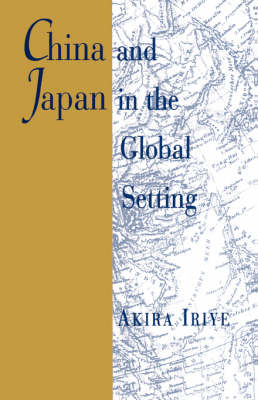The relationship between China and Japan remains among the most significant of all the world's bilateral affairs-yet it is also the most tortured and the least understood. Akira Iriye adds brilliant clarity to the past century of Chinese-Japanese interactions in this masterful interpretive survey.
Placing the relationship within its global context, he outlines three distinct periods in the history of these Asian giants. From the 1880s to World War I, the two nations struggled for power. Armaments, war strategies, and security measures played pivotal roles, reflecting the importance 0f military calculations in a world dominated by Western governments.
In the second period, that between the two World Wars, Iriye illuminates the dominant role of culture and the stress on internationalism. China's continuing literary influence, an exchange of ideas and students reforms such as Japan's Taisho democracy and China's May Fourth movement, and both nations' bid for racial equality in the West profoundly affected these interwar years.
The third period reaches from the end of World War II through the present day, and is characterized by exchanges of an economic nature: trade, shipping, investment, and emigration. The author discusses the results of China's civil war, the rise and decline 0f the Cold War in the West, and the cultural and ecological problems brought by Japan's spiraling economic development. But economic ties remain deeply entwined with cultural concerns, and ultimately, Iriye stresses, the future of China and Japan depends on the successful cultural interdependence of what may be the most significant pair of countries in the world today.
- ISBN10 0674118391
- ISBN13 9780674118393
- Publish Date 18 September 1998 (first published 1 January 1992)
- Publish Status Active
- Out of Print 11 April 2022
- Publish Country US
- Imprint Harvard University Press
- Format Paperback
- Pages 168
- Language English
